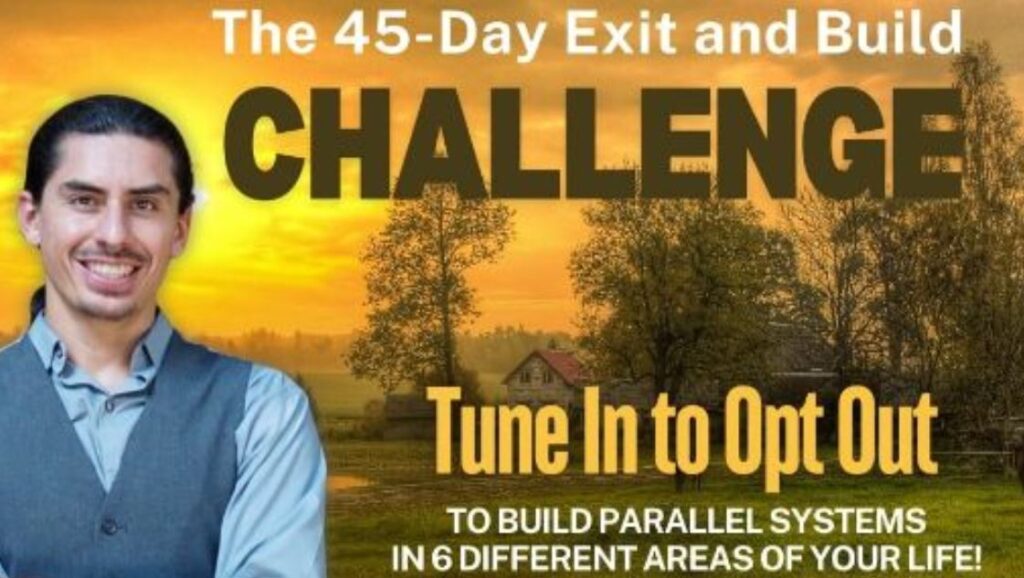Derrick Broze’s series on the Exit and Build strategy is designed to explore a sustainable approach to creating a resilient and self-sufficient community. Over the span of seven weeks, Broze aims to provide a holistic framework for individuals looking to escape restrictive systems and establish a parallel economy. Each week’s focus builds upon the last, beginning with foundational elements like food and money, then transitioning into technology, land, education, mindset, habits, and ultimately, the importance of holistic thinking.
In the second week of the 45-Day Exit and Build Challenge, Broze emphasizes the critical issues surrounding the current financial system, particularly the fiat currency’s unsustainability, inflationary pressures, and governmental debanking efforts that restrict people’s access to their funds. He highlights how tracking and social engineering tactics are implemented to control individuals’ financial decisions. These concerns are not merely abstract; they reflect the urgent need for a shift away from reliance on traditional banking structures that are increasingly seen as detrimental to personal freedom and financial stability.
To address the failures of the traditional banking system, Broze proposes several alternative solutions. He advocates for the use of cash as a means to maintain autonomy and privacy in financial transactions, urging individuals to exit conventional banks and join credit unions, which often offer more community-focused services. Additionally, he introduces cryptocurrency as a viable alternative that empowers individuals to take ownership of their finances, particularly through privacy coins like Monero (XMR). The emphasis on community is paramount; it underscores the necessity of mutual support and cooperative efforts in building an alternative economic system.
The homework assigned for the week encourages participants to actively implement these strategies in their lives. Broze challenges individuals to rely solely on cash for the upcoming week, thereby experiencing a form of practical disengagement from institutional banking. This exercise serves as a test of will and adaptability, fostering discussions around the broader implications of using cash versus digital transactions. He also urges participants to research and familiarize themselves with credit unions and cryptocurrencies, particularly focusing on Monero for its emphasis on privacy, thus deepening their understanding of these financial tools.
Broze’s guidance culminates in promoting the importance of building a private parallel economy that empowers communities to thrive outside traditional systems. By collectively adopting alternative economic practices, individuals can foster environments that prioritize local resilience and sustainability. The weekly themes aim to equip participants not just with knowledge but also with actionable steps towards creating this economy, ultimately leading to a reconsideration of how they approach money, community, and self-reliance.
In conclusion, Derrick Broze’s Exit and Build Challenge is not just a response to current economic crises but a movement towards greater autonomy and empowerment. By addressing the flaws in the existing fiat system and proposing a roadmap for a parallel economy based on community support and alternative financial practices, Broze invites participants to rethink their relationship with money and to actively construct a more sustainable and free future. This strategy not only highlights the necessity of individual and community action but also reinforces the belief that a more liberated and self-sufficient society is achievable through conscious choices and cooperative effort.

